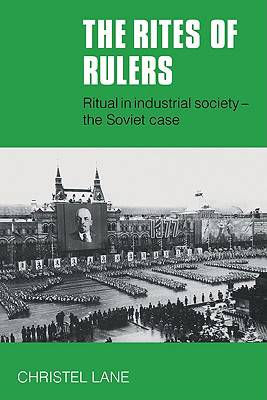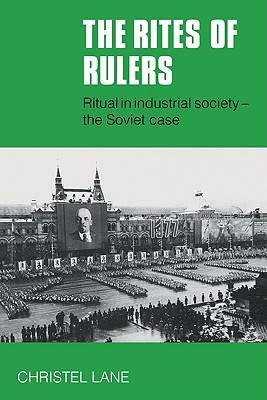
- Afhalen na 1 uur in een winkel met voorraad
- Gratis thuislevering in België vanaf € 30
- Ruim aanbod met 7 miljoen producten
- Afhalen na 1 uur in een winkel met voorraad
- Gratis thuislevering in België vanaf € 30
- Ruim aanbod met 7 miljoen producten
Zoeken
The Rites of Rulers
Ritual in Industrial Society - The Soviet Case
Christel Lane, Lane, Lane Christel
Paperback | Engels
€ 66,45
+ 132 punten
Uitvoering
Omschrijving
Although considerable attention has been paid to those cultural revolutions which result in fundamental social upheavals, the less spectacular silent cultural revolutions which leave the existing social structure intact, focusing instead on the behavioural dimension of ideology, have been neglected. In this book, which was originally published in 1981, Christel Lane examines such a silent revolution, exploring the ways in which it was achieved in the Soviet society of the time through the instrument of ritual. Dr Lane argues that ritual in the Soviet Union serves as a means of rendering sacred the existing social and political order; and her comparison of Soviet ritual with the rituals of other societies highlights the way in which ritual mirrors both the problematic social relations of society and political leaders' major concerns. This book will interest sociologists of religion, anthropologists, political sociologists, and Soviet studies.
Specificaties
Betrokkenen
- Auteur(s):
- Uitgeverij:
Inhoud
- Aantal bladzijden:
- 320
- Taal:
- Engels
Eigenschappen
- Productcode (EAN):
- 9780521283472
- Verschijningsdatum:
- 31/08/1981
- Uitvoering:
- Paperback
- Formaat:
- Trade paperback (VS)
- Afmetingen:
- 152 mm x 229 mm
- Gewicht:
- 471 g

Alleen bij Standaard Boekhandel
+ 132 punten op je klantenkaart van Standaard Boekhandel
Beoordelingen
We publiceren alleen reviews die voldoen aan de voorwaarden voor reviews. Bekijk onze voorwaarden voor reviews.











